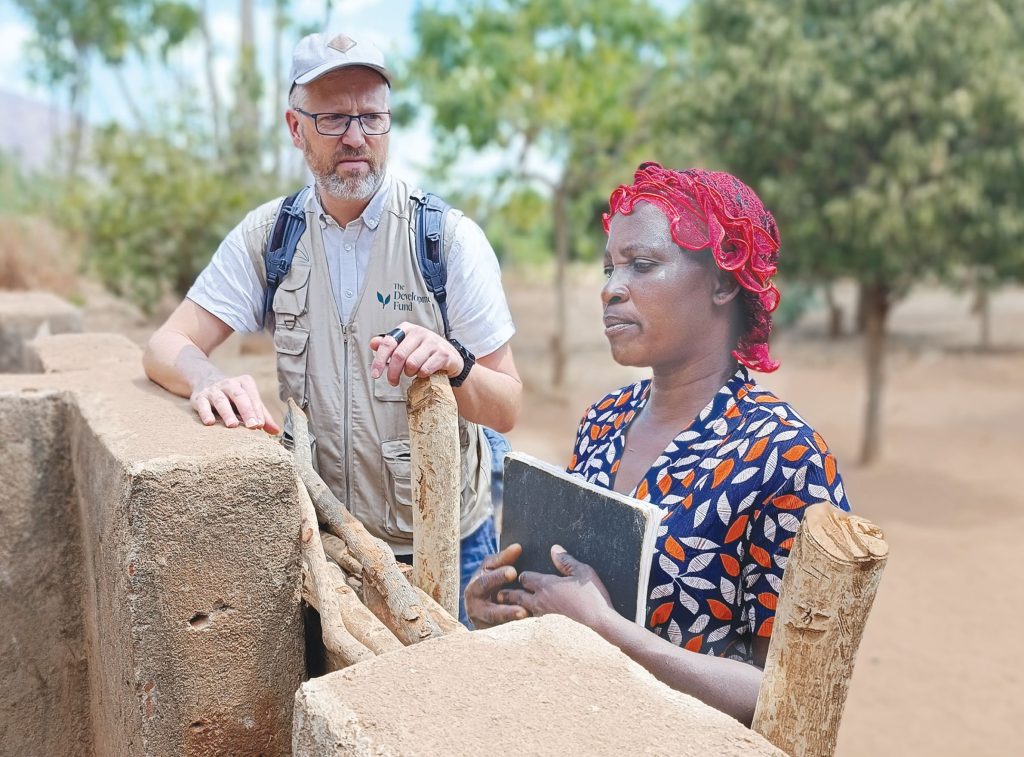From Norway with lessons
At 52, Patricia Mkandawire of Kacheche never imagined travelling beyond her rural setting in Mzimba North.
A trip beyond national borders was therefore a far-fetched dream.

But on September 22 2022, the smallholder farmer took a plane to Norway to represent rural farmers who have embraced new farming methods to harvest more amid climate change.
“I couldn’t believe it,” says Mkandawire. “I thought I was dreaming.
The Development Fund of Norway selected the lead farmer to represent her kind, who meet to share high-yielding farming innovations, in the Scandinavian country.
The fund promotes the farmer-to-farmer approach in partnership with Find Your Feet.
With lessons from the Farmer Meets Farmer Project, Mkandawire advocates climate-smart agriculture technologies to boost crop harvests.
The innovations include conservation agriculture, agroforestry, manure-making, post-harvest management, irrigation and integrated homestead activities.
She narrates: “In recent years, we have been experiencing the late onset of rainfall and early offset of rains.
“This affects harvests. But I have experienced some improvements since I adopted these climate-smart technologies.
Now applying compost manure to his crop field, Mkandawire harvests 66 bags from an acre that once produced three to five bags.
Additionally, Mkandawire says conservation agriculture helps soil fertility and moisture retention, which boosts crop harvests during dry spells.
As a lead farmer, she is a role model for 20 farmers under her mentorship.
In Norway, she met cooperatives, farmers’ unions, farm owners, university students, politicians, journalists and that country’s Minister of Development Cooperation.
“All we wanted was to tell the story of corroboration and the good work of the most vulnerable farmers in Malawi,” says Jan Thomas Odegard, the secretary general of the Development Fund of Norway.
The fund produces documentaries of such visits for more farmers to learn from them, he adds.
According to Odegard, this is part of an exchange programme in which some Norwegian farmers also come to Malawi “to learn how local farmers deal with challenges of climate change”.
He states: “The most important message that Mkandawire came with is that climate change has created lots of challenges in poor countries like Malawi. Actually, Malawian farmers have done nothing to create this climate change.
“Norway, as an oil and gas producing nation, has contributed to this climate change. So we want Norwegians to be aware that Norway must contribute to climate adaptation.”
The Norwegian government has pledged to triple funding by 2025.
The Development Fund of Norway urges the European nation to commit more resources to climate adaptation.
Odegard challenges popular narratives that portray Africa as helpless victim of climate change or weak, saying such narratives undermine Africans’ resilience and contribution to combating climate change.
He explains: “Mkandawire is not a victim, but a very strong woman. She has a nice farm. She shows the potential that African men and women have. They are not victims.
“They are just like any other person in Norway. If given a chance they can also make a difference in their lives and in their community.”
Lessons
Mkandawire says farmers in Norway practice large-scale agriculture using machines, something she wants to be replicated in Malawi, where many rely on handheld tools exemplified by hoes.
“It is inspiring that Norwegian farmers grow crops all year round through irrigation, increasing their crop yields beyond the rainy season,” she says.
The farmer adds: “I saw a farmer with 300 sheep, 300 goats and over 400 cattle. This inspired me so much that I want to start rearing animals at a large-scale,” she says.
Concurring, Find Your Feet executive director Melina Mtonga says the West needs to contribute more finances for climate adaptation programmes to achieve climate justice.
“As a poor country, we, Malawians, are really suffering, yet we contribute little to greenhouse emissions. Rich countries need to bear the burden by assisting least developed countries to scale up activities to deal with climate change,” she says.
Her nongovernmental organisation says the lead farmers are the face of a community-based agricultural extension initiative to reach out to more farmers with climate-smart agriculture technologies.
Find Your Feet plans to use the documentary from Mkandawire’s trip to disseminate the lead farmer’s lessons from Norway and promote the best practices less known to communities like hers.





